WINDHAM — Tree trunks 26 feet long are stacked as high as a house, running more than 150 feet across a roadside clearing near Forest Lake. It looks like a backcountry wood yard for feeding a paper mill, but it’s actually next winter’s heat for hundreds of people in Greater Portland.
“This should be gone by the end of July, if the weather holds out,” said Mark Killinger, as he stood below the pile in late May.
Owner of Atlantic Firewood, Killinger and his son, Mike, will work up the mountain of trees into 16-inch-long split logs. Stacked, the logs will total 300 cords of firewood.
But the pile won’t go far in satisfying the demand for firewood in Greater Portland, not this year. Killinger and other dealers say homeowners are calling early and ordering more wood than normal, while memories of last winter’s brutal cold are still fresh. That has put pressure on the wood supply, with smaller dealers scrambling to find tree-length wood, process it and schedule timely deliveries.
Wait too long to order firewood this year, dealers warn, and it may be hard to get come fall. By late summer, some say, seasoned wood may be especially hard to find.
Killinger said that if someone calls him today to order green firewood, he’ll drop it in their yard at the end of June.
“The difference this year is, people who would take one or two cord are now asking for four,” he said. “This past winter was so cold, my phone was ringing off the hook in February with people looking for seasoned firewood. The best advice I can give is order early, and make sure you don’t run out.”
Wood heat in Maine has ebbed and flowed since the 1970s, based on the price of oil. Wood’s in favor again and an average price comparison this spring from the Governor’s Energy Office shows why.
Based on British thermal units, the common heating-unit value, it would take $26.75 worth of oil to equal the same amount of heat as $11.36 of firewood. This equivalent was for oil at $3.71 a gallon and wood at $250 a cord.
The comparison doesn’t figure burner efficiency and other factors, but it helps explain recent census data showing Maine second only to Vermont in using wood as a primary heating source, at 12 percent. And that share fails to capture the thousands of homes stoking stoves as a secondary source, to take the edge off an oil bill.
Those supplemental wood burners seem to be driving a growing market in southern Maine for seasoned and kiln-dried firewood. Seasoned wood has been split at least six months and air-dried to a moisture content of roughly 25 percent. Wood dried in a kiln is closer to 15 percent.
Drier wood burns more easily and more cleanly, and gives off more heat, but it costs more money. Seasoned wood in southern Maine is selling today in the $275 range; kiln-dried is around $350. By comparison, freshly cut green wood goes for roughly $200.
At Maine Coast Firewood in Windham, the demand for seasoned and kiln-dried has led to a near phase-out of green wood sales. The company processes roughly 1,000 cords a year, selling equal shares of seasoned and kiln-dried.
Maine Coast Firewood is taking orders for seasoned wood that will be delivered in August. David Moore, a co-owner, said people should call now to assure delivery.
“All our inventory will be reserved by mid-June,” he said. “Sixty percent is gone now.”
In Porter, William A. Day Jr. & Sons has 1,500 cords of split logs piled on a paved yard, seasoning in the sun. Seasoned wood ran out last year, so the company upgraded its equipment to process up to 15 cords a day.
“I think it’s just a space issue,” said Brent Day, the owner, reflecting on the preference for seasoned wood. “Some people don’t have the space to pile it up and let it set.”
Some dealers, including David Moore, complain that they’re having a hard time getting trees now to process. They say most of the supply is going to paper mills.
Day, a third-generation logger, said he has enough inventory to keep two processors busy, but agreed that tree-length wood is in short supply. In spring, his logging trucks are headed to mills in Westbrook, Rumford and Bucksport, which need logs to make hardwood pulp.
The tree shortage isn’t unusual at this time of year, according to Eric Kingsley, vice president of Innovative Natural Resource Solutions in Portland. Mills stockpile logs in the winter ahead of mud season, when harvesting shuts down. They’re restocking now, but the early calls and extra-cord orders for firewood have put the two enterprises in conflict.
“It’s just that the firewood guys want more at this time than they did in the past,” Kingsley said.
One consequence of the high demand is that the price of hardwood pulp is up $5 a ton, hitting $50. That could prompt some dealers to raise firewood prices.
At Atlantic Firewood, Killinger said he’s holding his prices at last year’s levels – $225 for green and $275 for seasoned.
Killinger doesn’t worry about supply because his son operates Southern Maine Logging. The younger Killinger was cutting last winter in Raymond. He was helping his dad one day recently move lengths of beech, ash and red oak through the processor.
Mark Killinger sat in the cherry picker and grabbed limbed trees from the log truck and placed them onto the processor bed. A chain saw automatically sliced the trees into 16-inch logs, which then were split in half by a hydraulic ram. Then they rode a conveyor up into the delivery truck. Working together, the two men can process 10 cords a day.
While some dealers are shifting to seasoned wood, Killinger said he focuses on green and caters to people who use up to four cords as a primary heat source. Those folks tend to plan ahead, and he encourages them to order green wood for the following winter, so it has more than a year to dry.
“If you can stay ahead a year, do it,” he said.
Increasingly, people who don’t want the hassle of firewood, or who wait too long to get dry wood, are turning to bioproducts. They’re bone dry, made from wood chips and sawdust and formed into blocks under high heat and pressure.
Don’t wait until fall to order bio- products, either, retailers say.
“I do expect the bioproduct sales to pick up earlier this year,” said Jim Marius at Southern Maine Renewable Fuels in Windham.
Marius has orders now for 60 tons of bioproducts. They include the popular Canawick bricks, priced at $289 for a 2,160-pound pallet, and Envi Blocks, which are $284 a ton. Last winter, the Envi Blocks were selling for $314 a ton, so summer’s the time to get them and save money, Maruis said.
By fall, retailers will face a delivery crunch, as phones begin ringing after the first cool nights.
“People’s definition of early is different than mine,” he said. “They’re thinking October, before the snow starts. But that’s not early in the heating world.”
Tux Turkel can be contacted at 791-6462 or at:
tturkel@pressherald.com
Send questions/comments to the editors.



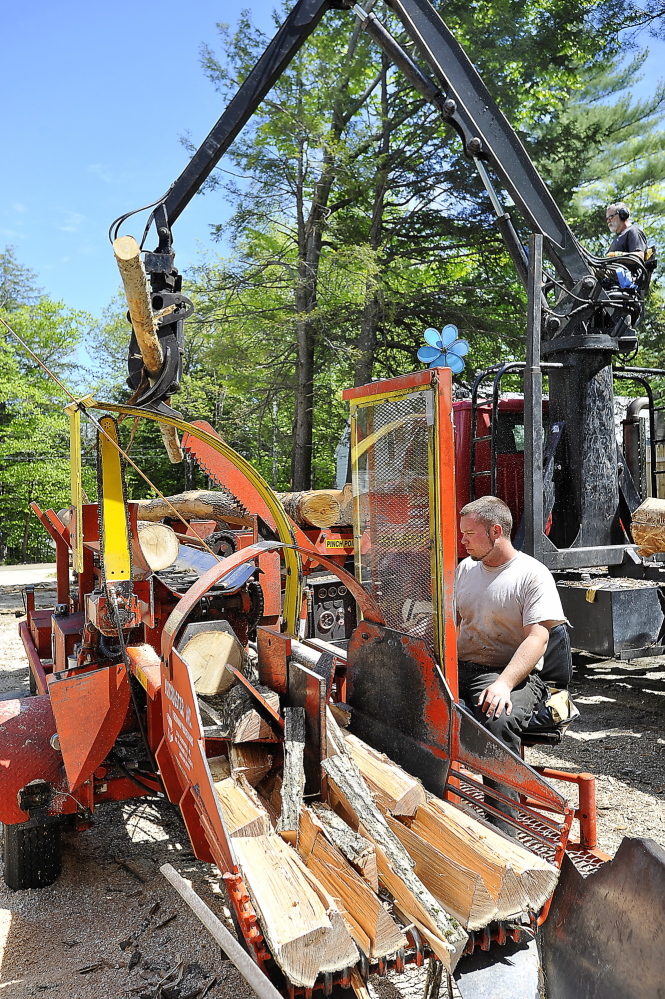
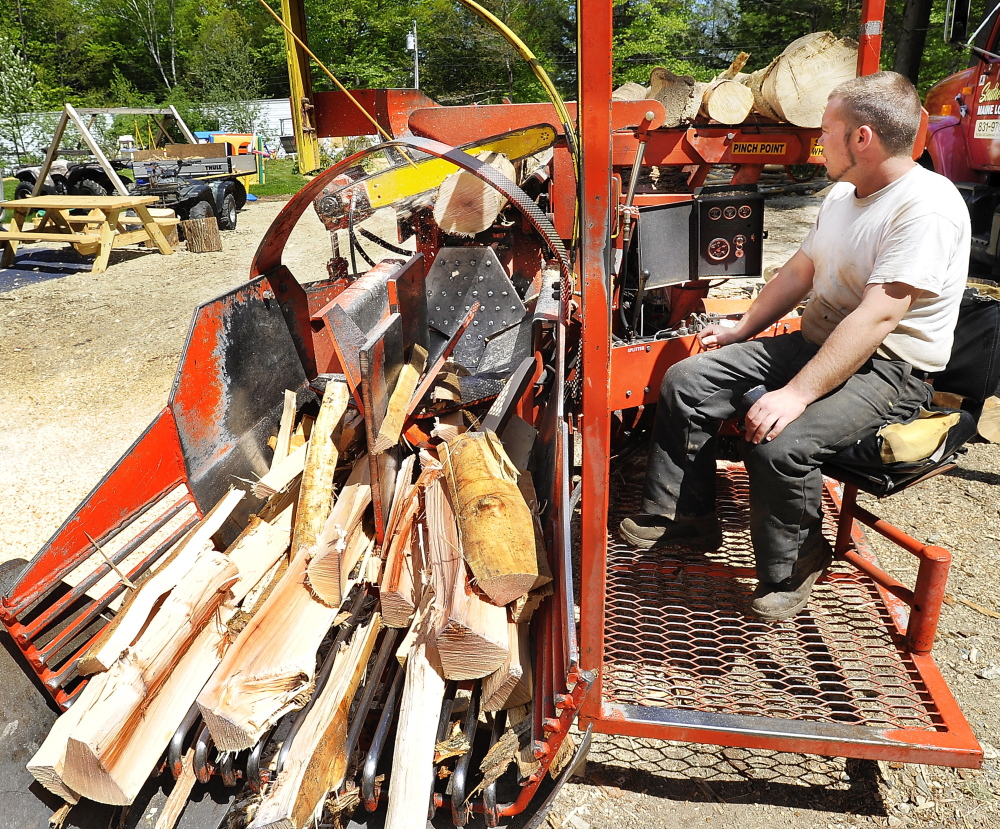
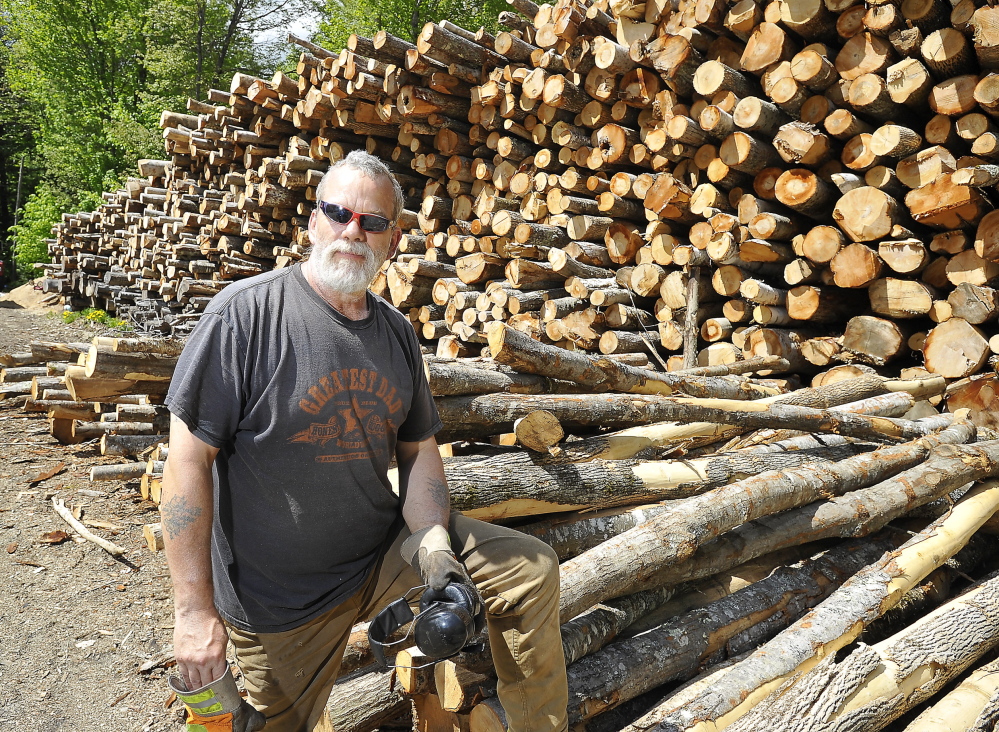
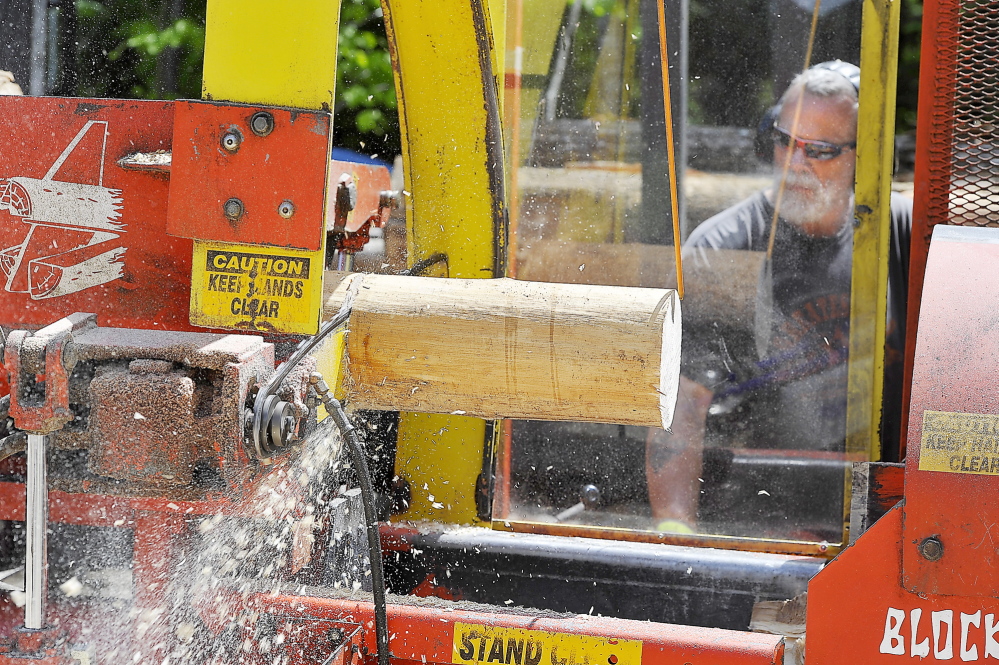
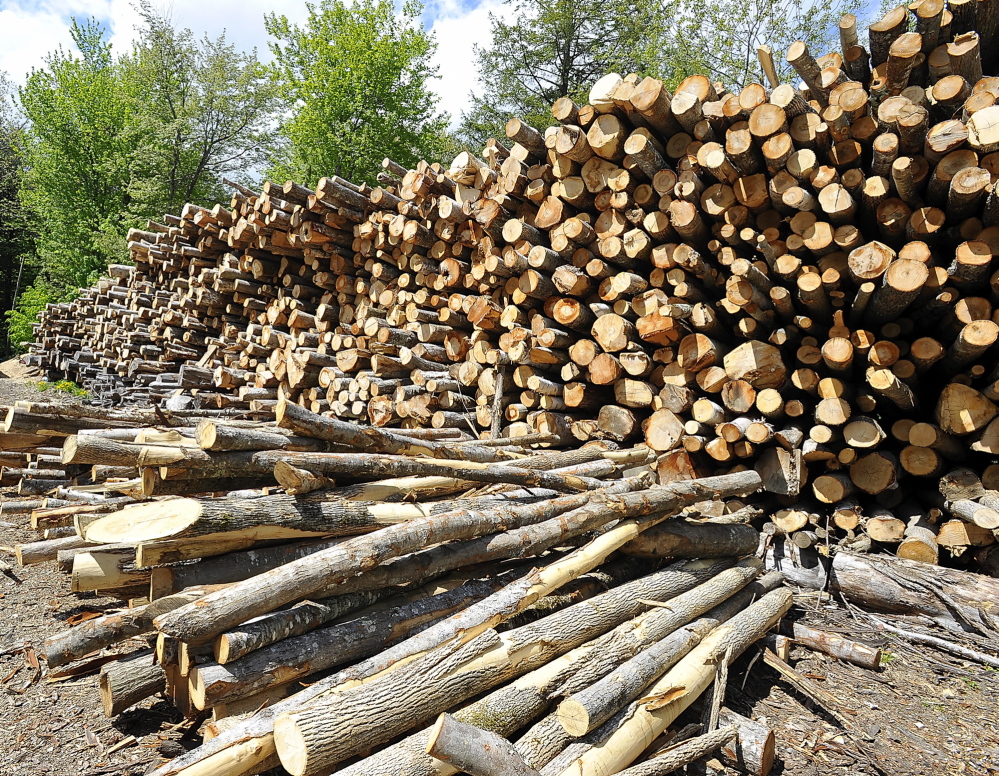

Success. Please wait for the page to reload. If the page does not reload within 5 seconds, please refresh the page.
Enter your email and password to access comments.
Hi, to comment on stories you must . This profile is in addition to your subscription and website login.
Already have a commenting profile? .
Invalid username/password.
Please check your email to confirm and complete your registration.
Only subscribers are eligible to post comments. Please subscribe or login first for digital access. Here’s why.
Use the form below to reset your password. When you've submitted your account email, we will send an email with a reset code.